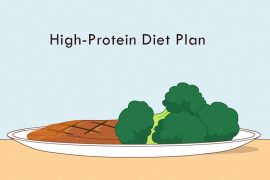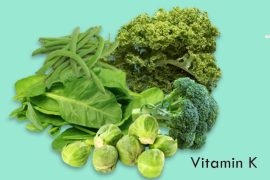Navigating the intersection of healthy eating or eco-friendly eating and environmental sustainability can be daunting due to pervasive myths surrounding food labels like “organic beef,” “GMO-free,” and “100% natural.” These labels often mislead consumers into believing products are more environmentally friendly than they might be. The reality is that determining a food’s true environmental impact involves considering complex factors such as resource consumption, greenhouse gas emissions, biodiversity effects, transportation distances, and waste generation. While consumers increasingly seek out these labels, they often lack sufficient information about how these features genuinely contribute to sustainability. This confusion underscores the need for better education and transparency in food labeling to empower consumers to make more informed choices that align with both personal health and environmental stewardship.
Despite the complexity, the fundamental principles of a sustainable diet are clear: prioritize plant-based foods such as fruits, vegetables, whole grains, legumes, nuts, and seeds. These eco-friendly foods generally have lower environmental footprints compared to animal products and highly processed foods. By focusing on increasing the proportion of plant-based foods in daily meals and reducing reliance on resource-intensive animal products, individuals can make significant strides towards improving both personal health outcomes and environmental sustainability. Educating consumers about the broader impacts of their food choices and debunking common myths will be crucial in fostering a more sustainable food system for future generations.
At least half of our daily calorie intake should come from fruits, vegetables, whole grains, legumes, nuts, and seeds while significantly limiting red meat and energy-dense, nutrient-poor foods such as sugar and refined grains. Unfortunately, typical Western diets are far from these ideal, and numerous economic, political, and societal factors contribute to this discrepancy, making it a challenging issue to address.
However, tackling the psychological barriers that prevent the public from consuming more sustainably can help improve their behavior. The first step towards this is addressing the significant lack of knowledge consumers have about what makes a food choice eco-friendly. Many people are unaware of the environmental impact of their food choices and hold misconceptions about sustainability in food production. Educating consumers on the ecological benefits of plant-based diets and the complexities of organic and local food production can drive more informed and sustainable dietary habits. By increasing awareness and understanding, we can promote dietary changes that align better with both health and environmental sustainability.
Myth 1: “Meat’s eco-footprint is exaggerated”
- Reality: Animal husbandry, particularly beef production, significantly impacts the environment through high greenhouse gas emissions, extensive resource use, and pollution. Shifting towards a plant-based diet can reduce an individual’s ecological footprint by 20 to 30%, far exceeding the impact of other lifestyle changes like reducing car travel or conserving electricity.
Myth 2: “Organic and local always equals sustainable”
- Reality: While organic and local production can reduce chemical use and transportation emissions, their sustainability varies based on factors like farming practices and energy consumption. For example, organic farming may involve increased fuel and machinery use, and locally grown produce in heated greenhouses can be less sustainable than those grown in distant unheated structures. Plant-based diets or eco-friendly diets generally offer greater environmental benefits than organic or local meat products.
Myth 3: “What is natural is good”
- Reality: There’s a natural bias that assumes foods without preservatives or artificial ingredients are inherently superior. However, this overlooks the potential benefits of technologies like genetically modified (GM) crops, which can enhance sustainability by increasing yields and reducing pesticide use. Evaluating foods based on their actual environmental impacts is crucial rather than dismissing them solely due to perceived naturalness.
Myth 4: “Good for me, good for the planet”
- Reality: While nutritious foods are beneficial for health, their environmental impact varies. For instance, the environmental footprint of strawberries can differ significantly based on factors like production methods and transportation. Plant-based diets generally offer better environmental outcomes, but they may not always provide identical nutritional benefits compared to animal-based foods. Achieving a truly eco-friendly and sustainable diet involves balancing nutritional value with ecological footprint considerations.
Myth 5: “Conserving the planet requires breaking the budget”
- Reality: Contrary to popular belief, sustainable diets can be cost-effective. Plant-based diets are often more affordable than traditional Western diets, with potential cost savings of up to one-third for vegans and vegetarians. Flexitarians who reduce meat intake can also save significantly on food costs. However, affordability can vary globally, with challenges in low-income countries where diets heavily rely on inexpensive staples. Economic and policy interventions are essential to make sustainable diets accessible and affordable for everyone.
In conclusion, debunking these myths is crucial for making informed food choices that promote both personal health and environmental sustainability. Understanding the complexities of food production and consumption empowers individuals to contribute positively to global sustainability efforts through their dietary decisions.
Disclaimer:
The information contained in this article is for educational and informational purposes only and is not intended as a health advice. We would ask you to consult a qualified professional or medical expert to gain additional knowledge before you choose to consume any product or perform any exercise.







